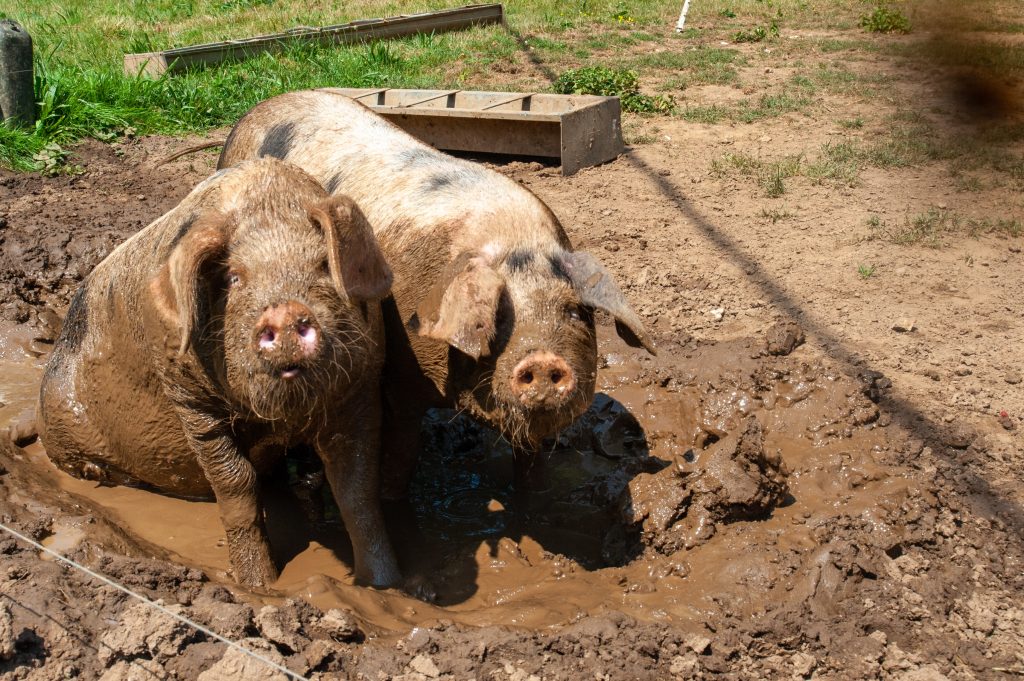“Ugh,” I said. “I’m having feelings about that. Feelings are gross!”
“Aren’t you a therapist?” My therapist asks, gently trying to coax me to shut the fuck up and sit with my feelings, as a good therapist does.
“Yes! And I’m a good therapist because I know feelings are gross!”
This disgust response was not one I’d ever felt so viscerally before this past year, but it’s one I recognize from my younger life. Something in me had learned to see my needs and vulnerabilities as shameful, disordered, and needing to be controlled and hidden as much as possible. When I was confronted with the necessity of caring for my feelings, it was often done with as much distance as I could muster, as though I was a disgusted caregiver trying to hold their breath as they rush through changing a baby’s diaper.
What seemed surprising to me was this resurgence, as I’d spent a number of years feeling enthusiastic about connecting with and caring for my feelings, embracing my needs, being vulnerable and sensitive and letting my sweetness emerge.
Letting down my intellectualizing, dismissive protectors was a tremendous risk and a scary effort, and I am so grateful I did and got to learn how joyful it is to be soft and loving. And I also got emotionally hurt, and many of my ideals about life and connection proved to have illusions attached to them, and COVID happened, and I retreated back into cynical defeat and detachment.
Which was okay, for a time, but I knew I didn’t want to live there either. There has to be a path between cynicism and naive vulnerability, and I am condemned to continue to seek it, though the seeking at times means having to find one of those edges if only to know I’ve gone too far in one direction.
Though you may not relate to my disgust response, I know there are many parts of us who similarly feel unhappy with having needs, vulnerabilities, and tender feelings. We tend to associate these with animals and children, those needy creatures, and identify ourselves with the wearied adults trying to get them to calm down so we can get a moment’s rest. Those parts of us feel embarrassed or exhausted by the needs they cannot quite accept or understand.

This style of distancing may be very intellectual, or cynical, or darkly humored, but there’s a tricky style that looks very much like a person who knows all the right things to do and say. They have a robust spiritual practice, or they read Oprah and Brené Brown religiously, and they can tell you with a smile and full eye contact how important vulnerability is to connection. All the while hiding their grossest feelings.
Brené Brown is actually quite a good role model for this problem, as her public persona has been consistently, brutally honest with her own journey around acceptance and shame. She does not allow herself or us to deify her as some shame-free enlightened person for whom vulnerability is easy.
Vulnerability is never easy. Even when we expand our “comfort zones” there is always more territory of discomfort to own or explore, and old pains and vulnerabilities that creep back in when we’re busy having other adventures.
Recently I’ve been listening to spiritual teachers, coaches, and even some therapists who seem to promise that if you work hard enough you’ll reach a state where you are fully healed and un-triggerable. Wouldn’t that be so wonderful?
Yet I think such aspirations are not only unrealistic but that they become a hindrance to healing and growth in time. We reach a point where we’re feeling the same old disgust and impatience with ourselves, but now it’s dressed up in more refined spiritual or psychological language that boils down to “I don’t want to deal with this!”
This mindset of healing is quite aggressive—that our needs and wounds must be uprooted, or transformed, or eradicated to reach a particular desirable state of consciousness. When we merge with this perspective, we tend to be uncharitable, condescending, and inhospitable to those parts of us that are younger, shyer, more tender, more unruly. We cannot meet our needs on their own terms, and so we cannot work with them.
What I am working on is helping my disgusted fixing parts to instead see all of myself as a garden where many things grow, and all these things contribute to the vitality of my ecosystem, and some things may be interfering with the growth of others. Nothing that grows here is a problem to solve, or broken, but it’s a creature that requires my curiosity to learn about and understand so that I can help it to thrive and help the larger garden to thrive.
Even my disgusted fixer part is a wonderful caretaker who can manage the higher level functions of the garden with expertise, and needs time to sit and relax and enjoy the sun for a while. Nothing helps him to relax better than being confronted by these needy creatures that remind me I’m not a machine, not an angel, not a disembodied spirit—I’m an animal that needs feeding and rest, fun and play, meaningful work and spacious emptiness.
There is nothing to be ashamed of when we can dwell in the entirety of our gardens.

